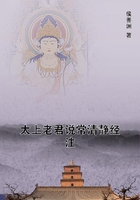Eastern Mythology Zoroaster Hindu Mythology Castes Buddha Grand Lama During the last fifty years new attention has been paid to the systems of religion of the Eastern world, especially to that of Zoroaster among the Persians, and that which is called Brahmanism and the rival system known as Buddhism in the nations farther east. Especial interest belongs to these inquiries for us, because these religions are religions of the great Aryan race to which we belong. The people among whom they were introduced all used some dialect of the family of language to which our own belongs. Even young readers will take an interest in such books as Clarke's Great Religions and Johnson's Oriental Religions, which are devoted to careful studies of them.
Our knowledge of the religion of the ancient Persians is principally derived from the Zendavesta, or sacred books of that people. Zoroaster was the founder of their religion, or rather the reformer of the religion which preceded him. The time when he lived is doubtful, but it is certain that his system became the dominant religion of Western Asia from the time of Cyrus (550B.C.) to the conquest of Persia by Alexander the Great. Under the Macedonian monarchy the doctrines of Zoroaster appear to have been considerably corrupted by the introduction of foreign opinions, but they afterwards recovered their ascendancy.
Zoroaster taught the existence of a supreme being, who created two other mighty beings, and imparted to them so much of his own nature as seemed good to him. Of these, Ormuzd (called by the Greeks Oromasdes) remained faithful to his creator, and was regarded as the source of all good, while Ahriman (Arimanes)rebelled, and became the author of all evil upon the earth.
Ormuzd created man, and supplied him with all the materials of happiness; but Ahriman marred this happiness by introducing evil into the world, and creating savage beasts and poisonous reptiles and plants. In consequence of this, evil and good are now mingled together in every part of the world, and the followers of good and evil the adherents of Ormuzd and Ahriman carry on incessant war. But this state of things will not last forever.
The time will come when the adherents of Ormuzd shall everywhere be victorious, and Ahriman and his followers be consigned to darkness forever.
The religious rites of the ancient Persians were exceedingly simple. They used neither temples, altars, nor statues, and performed their sacrifices on the tops of mountains. They adored fire, light, and the sun, as emblems of Ormuzd, the source of all light and purity, but did not regard them as independent deities.
The religious rites and ceremonies were regulated by the priests, who were called Magi. The learning of the Magi was connected with astrology and enchantment, in which they were so celebrated that their name was applied to all orders of magicians and enchanters.
"As to the age of the books of the Zendavesta, and the period at which Zoroaster lived, there is the greatest difference of opinion. He is mentioned by Plato, who speaks of 'the magic (or religious doctrines) of Zoroaster the Ormazdian.' As Plato speaks of his religion as something established in the form of Magism, or the system of the Medes in West Iran, which the Avesta appears to have originated in Bactria, or East Iran, this already carries the age of Zoroaster back to at least the sixth or seventh century before Christ.
"Professor Whitney of New Haven places the epoch of Zoroaster at 'least B.C. 1000,' and adds that all attempts to reconstruct Persian chronology or history prior to the reign of the first Sassanid have been relinquished as futile. Dollinger thinks he may have been 'somewhat later than Moses, perhaps about B.C.
1300,' but says 'it is impossible to fix precisely' when he lived. Rawlinson merely remarks that Berosus places him anterior to B.C. 2234. Haug is inclined to date the Gathas, the oldest songs of the Avesta, as early as the time of Moses. Rapp, after a thorough comparison of ancient writers, concludes that Zoroaster lived B.C. 1200 or 1300. In this he agrees with Duncker, who, as we have seen, decided upon the same date. It is not far from the period given by the oldest Greek writer who speaks of Zoroaster, Xanthus of Sardis, a contemporary of Darius. It is the period given by Cephalion, a writer of the second century, who takes it from three independent sources. We have no sources now open to us which enable us to come nearer than this to the time in which he lived.
"Nor is anything known with certainty of the place where he lived, or the events of his life. Most modern writers suppose that he resided in Bactria. Haug maintains that the language of the Zend books is Bactrian. A highly mythological and fabulous life of Zoroaster, translated by Anquetil du Perron, called the Zartrisht-Namah, describes him as going to Iran in his thirtieth year, spending twenty years in the desert, working miracles during ten years, and giving lessons of philosophy in Babylon, with Pythagoras as his pupil. All this is based on the theory (now proved to be false) of his living in the time of Darius.
'The language of the Avesta,' says Max Muller, 'is so much more primitive than the inscriptions of Darius, that many centuries must have passed between the two periods represented by these two strata of language. These inscriptions are in the Achaemenian dialect, which is the Zend in a later stage of linguistic growth.;"J. Freeman Clarke - Ten Great Religions Wordsworth thus alludes to the worship of the Persians:
" the Persian, zealous to reject Altar and Image, and the inclusive walls And roofs of temples built by human hands, The loftiest heights ascending from their tops, With myrtle-wreathed Tiara on his brows, Presented sacrifice to Moon and Stars And to the Winds and mother Elements, And the whole circle of the Heavens, for him A sensitive existence and a God."Excursion, Book IV
In Childe Harold, Byron speaks thus of the Persian worship:













